Systolic Blood Pressure
How to submit an article:
- Registered users can submit any published journal article that has a unique DOI (Digital Object Identifier) name or link to Research Hub.
- For example, you can paste the full DOI link:
https://doi.org/10.1109/5.771073or just the DOI name:10.1109/5.771073into the field above and click submit. - The person who is first to submit a valid article to Research Hub will forever be credited for it, and every article submission earns you +6 Research Points.
Published research studies are articles that present the findings of original research that has undergone a peer-review process and has been made publicly available in scholarly journals, books or other media.
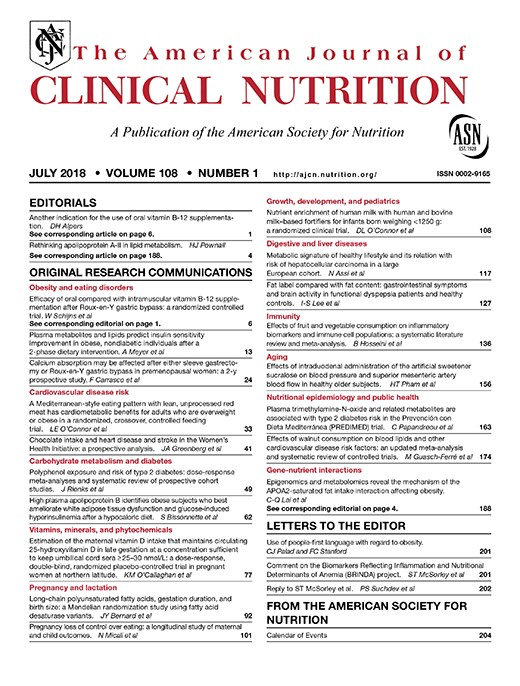
Wild blueberry (poly)phenols can improve vascular function and cognitive performance in healthy older individuals: a double-blind randomized controlled trial
2023 Jun The American Journal of Clinical Nutrition Wood E, Hein S, Mesnage R, Fernandes F, Abhayaratne N, Xu Y, et al.
Randomised Controlled Trial Cognitive Function Blueberry High Blood Pressure Cardiovascular DiseaseConsumption of blueberry powder daily improves vascular function, cognitive abilities, and reduces blood pressure in healthy older individuals.

Home‐based transcutaneous electrical acupoint stimulation for high‐normal blood pressure: A randomized controlled trial
2022 Jul 04 The Journal of Clinical Hypertension Wang Y, Yang JW, Liu JH, Qi YS, Tu JF, Tian ZX, et al.
The authors found a reduction in systolic blood pressure (SBP) control in the pragmatic, home-based intervention by using transcutaneous electrical acupoint stimulation (TEAS) combined with lifestyle modification in adults with high-normal BP.
Randomised Controlled Trial Electroacupuncture
The effects of cashew nut intake on lipid profile and blood pressure: A systematic review and meta-analysis of randomized controlled trials
2020 May Complementary Therapies in Medicine Jalali M, Karamizadeh M, Ferns GA, Zare M, Moosavian SP, Akbarzadeh M
Cashew nut consumption has no significant effects on lipid profile and diastolic blood pressure, but it may reduce systolic blood pressure.
Systematic Review Meta-Analysis Cashew Systolic Blood Pressure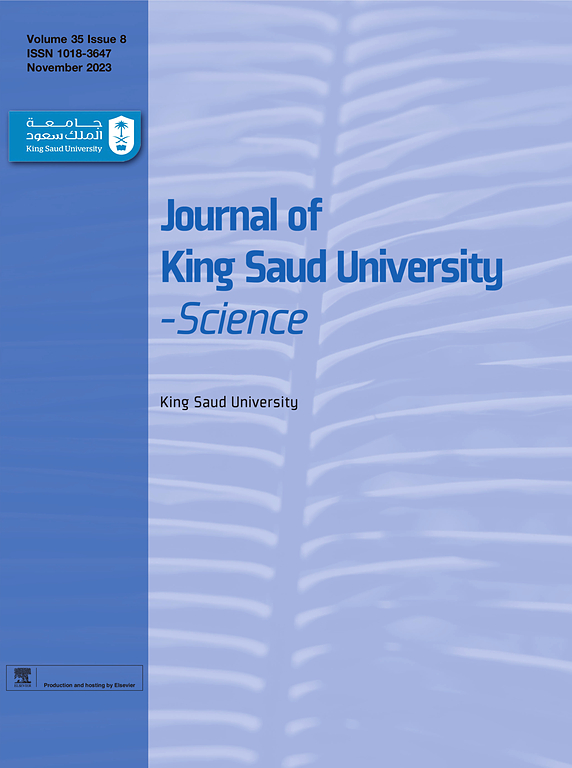
The effect of almonds consumption on blood pressure: A systematic review and dose-response meta-analysis of randomized control trials
2020 Mar Journal of King Saud University - Science Li Z, Bhagavathula AS, Batavia M, Clark C, Abdulazeem HM, Rahmani J, et al.
Systematic Review Meta-Analysis High Blood Pressure Almond Systolic Blood PressureAlmond consumption was found to significantly reduce systolic blood pressure.
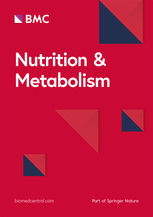
Effect of oral L-citrulline on brachial and aortic blood pressure defined by resting status: evidence from randomized controlled trials
2019 Dec 26 Nutrition & Metabolism Yang HH, Li XL, Zhang WG, Figueroa A, Chen LH, Qin LQ
Systematic Review Meta-AnalysisL-citrulline supplementation significantly decreased non-resting brachial and aortic systolic blood pressure.
Research insights are moderated by the Research Hub team and offer an at-a-glance overview of interesting research findings.

2023 The American Journal of Clinical Nutrition
Consumption of blueberry powder daily improves vascular function, cognitive abilities, and reduces blood pressure in healthy older individuals.
Randomised Controlled Trial Blueberry Cardiovascular Disease Cognitive Function High Blood Pressure
Wild blueberry (poly)phenols can improve vascular function and cognitive performance in healthy older individuals: a double-blind randomized controlled trial
Wood E, Hein S, Mesnage R, Fernandes F, Abhayaratne N, Xu Y, et al.

2020 Journal of King Saud University - Science
Almond consumption was found to significantly reduce systolic blood pressure.
Systematic Review Almond High Blood Pressure
The effect of almonds consumption on blood pressure: A systematic review and dose-response meta-analysis of randomized control trials
Li Z, Bhagavathula AS, Batavia M, Clark C, Abdulazeem HM, Rahmani J, et al.

2019 Nutrition & Metabolism
L-citrulline supplementation significantly decreased non-resting brachial and aortic systolic blood pressure.
Systematic Review
Effect of oral L-citrulline on brachial and aortic blood pressure defined by resting status: evidence from randomized controlled trials
Yang HH, Li XL, Zhang WG, Figueroa A, Chen LH, Qin LQ

2019 Critical Reviews in Food Science and Nutrition
Cinnamon supplementation leads to a significant reduction in both systolic and diastolic blood pressure in adults.
Systematic Review Anti-Hypertensive Chinese Cinnamon High Blood Pressure
Anti-hypertensive effects of cinnamon supplementation in adults: A systematic review and dose-response Meta-analysis of randomized controlled trials
Seyed Mohammad Mousavi, Ahmad Jayedi, Yahya Jalilpiran, Maryam Hajishafiee, Azadeh Aminianfar, Ahmad Esmaillzadeh.
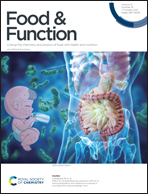
2019 Food & Function
Daily consumption of tart cherry juice may enhance cognitive abilities in older adults, likely due to reduction of hypertension, inflammation, and oxidative stress.
Randomised Controlled Trial Anti-Ageing Anti-Inflammatory Antioxidant Cherry Cognitive Function
Effect of Montmorency tart cherry juice on cognitive performance in older adults: a randomized controlled trial
Chai SC, Jerusik J, Davis K, Wright RS, Zhang Z
Review Articles
Review articles summarise and critically evaluate the current state of research on a specific topic or field by synthesising multiple primary research studies.

The effects of cashew nut intake on lipid profile and blood pressure: A systematic review and meta-analysis of randomized controlled trials
2020 May Complementary Therapies in Medicine Jalali M, Karamizadeh M, Ferns GA, Zare M, Moosavian SP, Akbarzadeh M
Cashew nut consumption has no significant effects on lipid profile and diastolic blood pressure, but it may reduce systolic blood pressure.
Systematic Review Meta-Analysis Cashew Systolic Blood Pressure
The effect of almonds consumption on blood pressure: A systematic review and dose-response meta-analysis of randomized control trials
2020 Mar Journal of King Saud University - Science Li Z, Bhagavathula AS, Batavia M, Clark C, Abdulazeem HM, Rahmani J, et al.
Systematic Review Meta-Analysis High Blood Pressure Almond Systolic Blood PressureAlmond consumption was found to significantly reduce systolic blood pressure.

Effect of oral L-citrulline on brachial and aortic blood pressure defined by resting status: evidence from randomized controlled trials
2019 Dec 26 Nutrition & Metabolism Yang HH, Li XL, Zhang WG, Figueroa A, Chen LH, Qin LQ
Systematic Review Meta-AnalysisL-citrulline supplementation significantly decreased non-resting brachial and aortic systolic blood pressure.

Anti-hypertensive effects of cinnamon supplementation in adults: A systematic review and dose-response Meta-analysis of randomized controlled trials
2019 Oct Critical Reviews in Food Science and Nutrition Seyed Mohammad Mousavi, Ahmad Jayedi, Yahya Jalilpiran, Maryam Hajishafiee, Azadeh Aminianfar, Ahmad Esmaillzadeh.
Systematic Review Meta-Analysis Anti-Hypertensive Chinese Cinnamon High Blood PressureCinnamon supplementation leads to a significant reduction in both systolic and diastolic blood pressure in adults.

Effects of L-citrulline supplementation on blood pressure: A systematic review and meta-analysis
2019 Jan Avicenna Journal of Phytomedicine Barkhidarian B, Khorshidi M, Shab-Bidar S, Hashemi B.
Systematic Review Meta-AnalysisL-citrulline supplementation may reduce systolic blood pressure. A significant reduction in diastolic blood pressure was observed only in the studies that used doses ≥ 6 g/day.
Clinical Trials
Clinical trials are research studies that involve people and are conducted to evaluate the safety and efficacy of new treatments or interventions, such as drugs, medical devices, or behavioural therapies.

Wild blueberry (poly)phenols can improve vascular function and cognitive performance in healthy older individuals: a double-blind randomized controlled trial
2023 Jun The American Journal of Clinical Nutrition Wood E, Hein S, Mesnage R, Fernandes F, Abhayaratne N, Xu Y, et al.
Randomised Controlled Trial Cognitive Function Blueberry High Blood Pressure Cardiovascular DiseaseConsumption of blueberry powder daily improves vascular function, cognitive abilities, and reduces blood pressure in healthy older individuals.

Home‐based transcutaneous electrical acupoint stimulation for high‐normal blood pressure: A randomized controlled trial
2022 Jul 04 The Journal of Clinical Hypertension Wang Y, Yang JW, Liu JH, Qi YS, Tu JF, Tian ZX, et al.
The authors found a reduction in systolic blood pressure (SBP) control in the pragmatic, home-based intervention by using transcutaneous electrical acupoint stimulation (TEAS) combined with lifestyle modification in adults with high-normal BP.
Randomised Controlled Trial Electroacupuncture
Beneficial effects of Codonopsis lanceolata extract on systolic blood pressure levels in prehypertensive adults: A double‐blind, randomized controlled trial
2019 Dec 13 Phytotherapy Research Shin YK, Hsieh YS, Han AY, Lee KW, Seol GH
In summary, CL was effective in preventing endothelial dysfunction, inflammation, and lipid peroxidation in prehypertensive subjects, with these effects differing according to baseline systolic BP levels.
Randomised Controlled Trial High Blood Pressure Dang Shen
Effect of Montmorency tart cherry juice on cognitive performance in older adults: a randomized controlled trial
2019 Jan Food & Function Chai SC, Jerusik J, Davis K, Wright RS, Zhang Z
Randomised Controlled Trial High Blood Pressure Antioxidant Anti-Inflammatory Anti-Ageing Cherry Cognitive FunctionDaily consumption of tart cherry juice may enhance cognitive abilities in older adults, likely due to reduction of hypertension, inflammation, and oxidative stress.

Effects of Montmorency tart cherry (Prunus Cerasus L.) consumption on vascular function in men with early hypertension
2016 Jun The American Journal of Clinical Nutrition Keane KM, George TW, Constantinou CL, Brown MA, Clifford T, Howatson G
Randomised Controlled Trial High Blood Pressure Cherry Systolic Blood Pressure Cardioprotective EffectsMontmorency tart cherry juice intake can significantly lower systolic blood pressure in men with early hypertension, with improvements linked to phenolic acids.
Study Protocols
Published study protocols are detailed plans that outline the objectives, methodology, statistical analyses, and organisation of a research study that have been made publicly available for others to review and use as a reference.
Presentation Slides

Randomised Controlled Trial
Consumption of blueberry powder daily improves vascular function, cognitive abilities, and reduces blood pressure in healthy older individuals.
Wood E, Hein S, Mesnage R, Fernandes F, Abhayaratne N, Xu Y, Zhang Z, Bell L, Williams C, Rodriguez-Mateos A

Systematic Review
Almond consumption was found to significantly reduce systolic blood pressure.
Li Z, Bhagavathula AS, Batavia M, Clark C, Abdulazeem HM, Rahmani J, Yin F

Systematic Review
L-citrulline supplementation significantly decreased non-resting brachial and aortic systolic blood pressure.
Yang HH, Li XL, Zhang WG, Figueroa A, Chen LH, Qin LQ

Systematic Review
Cinnamon supplementation leads to a significant reduction in both systolic and diastolic blood pressure in adults.
Seyed Mohammad Mousavi, Ahmad Jayedi, Yahya Jalilpiran, Maryam Hajishafiee, Azadeh Aminianfar, Ahmad Esmaillzadeh.

Randomised Controlled Trial
Daily consumption of tart cherry juice may enhance cognitive abilities in older adults, likely due to reduction of hypertension, inflammation, and oxidative stress.
Chai SC, Jerusik J, Davis K, Wright RS, Zhang Z

Systematic Review
L-citrulline supplementation may reduce systolic blood pressure. A significant reduction in diastolic blood pressure was observed only in the studies that used doses ≥ 6 g/day.
Barkhidarian B, Khorshidi M, Shab-Bidar S, Hashemi B.

Randomised Controlled Trial
Montmorency tart cherry juice intake can significantly lower systolic blood pressure in men with early hypertension, with improvements linked to phenolic acids.
Keane KM, George TW, Constantinou CL, Brown MA, Clifford T, Howatson G

Systematic Review
There is evidence of efficacy of acupuncture as an adjunctive therapy to western medicine for treating hypertension.
Zhao XF, Hu HT, Li JS, Shang HC, Zheng HZ, Niu JF, et al
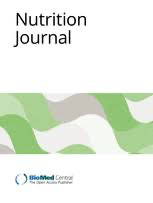
Systematic Review
These results suggest the possible antihypertensive effects of black sesame meal on improving antioxidant status and decreasing oxidant stress.
Wichitsranoi, J., Weerapreeyakul, N., Boonsiri, P. et al.
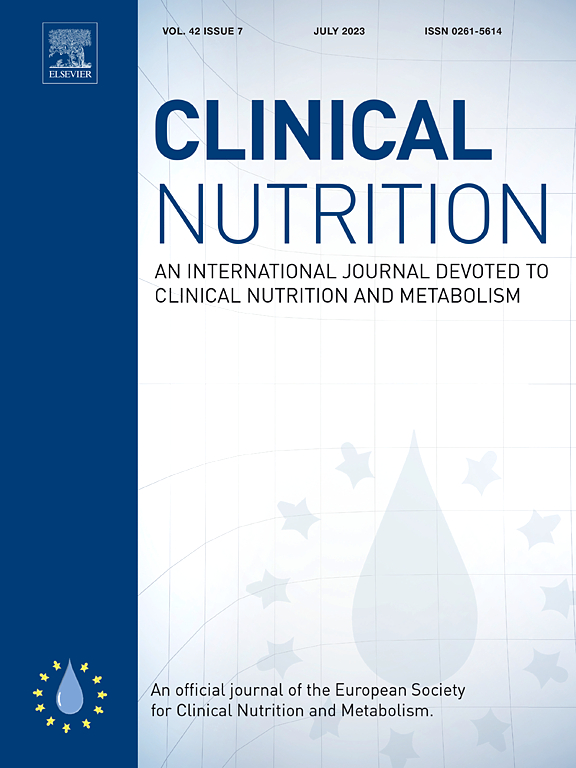
Clinical Study
Consumption of pomegranate juice by patients with carotid artery stenosis decreases carotid intima-media thickness and systolic blood pressure, potentially due to its strong antioxidant properties.
Aviram M, Rosenblat M, Gaitini D, Nitecki S, Hoffman A, Dornfeld L, Volkova N, Presser D, Attias J, Liker H, Hayek T
Executive Summary
Write an executive summary in the form of a blog article on the topic of "Research into Chinese medicine treatment for Systolic Blood Pressure" summarising the research below and using language that can be easily understood by patients and avoiding medical jargon using a professional and caring tone of voice.
Write an executive summary in the form of a blog article on the topic of "Researched Chinese medicine treatments for Systolic Blood Pressure" summarising the research below in an objective and easy to understand way, and using language that can be easily understood by patients. Group the article into Chinese medicine treatments first, followed by nutrition and other treatments. Avoid using medical jargon and use a professional and caring tone of voice.
Write me a concise but easy to understand executive summary on the topic of "Chinese medicine treatments for Systolic Blood Pressure" based on the following research that I will give you. Your summary should be 2 paragraphs long in Australian English spelling and include references to the studies.
A Randomised Controlled Trial published in 2023 in the journal The American Journal of Clinical Nutrition found that Consumption of blueberry powder daily improves vascular function, cognitive abilities, and reduces blood pressure in healthy older individuals. This double-blind, parallel randomized controlled trial engaged 61 healthy older individuals aged between 65 to 80 years old. Participants were given either 26g of freeze-dried wild blueberry (WBB) powder, comprising 302 mg anthocyanins, or a similar placebo with zero mg anthocyanins. Measurements were made for endothelial function, cognitive function, arterial stiffness, blood pressure, cerebral blood flow, gut microbiome, and blood parameters, both at the start of the trial and again following 12 weeks of daily consumption. In addition, plasma and urinary polyphenol metabolites were analyzed through the use of microelution solid-phase extraction combined with liquid chromatography-mass spectrometry. In the WBB group, there was a notable increase in endothelial function and a decrease in 24-hour ambulatory systolic blood pressure, when compared to the placebo group. Enhanced immediate recall on the auditory verbal learning task was also observed, along with better accuracy on a task-switch task following administering of WBB. Notably, the total 24-hour urinary excretion of polyphenols also significantly increased in the WBB group comparative to the control group. In contrast, there were no discernible changes in cerebral blood flow or gut microbiota composition. These findings imply that WBB polyphenols could contribute to reducing future cardiovascular disease risk in older populations, and might enhance memory processes and executive functioning in older adults at risk of cognitive decline.
A Systematic Review published in 2020 in the journal Journal of King Saud University - Science found that Almond consumption was found to significantly reduce systolic blood pressure. A systematic and dose-response meta-analysis review study was carried out. The researchers thoroughly searched through PubMed/MEDLINE, Web of Science, and Scopus, with no restrictions on time or language, up until July 2019. The goal was to identify randomized controlled trials which investigated the effects of almond consumption on systolic and diastolic blood pressure. A total of fifteen studies, with 21 arms and involving 853 participants, were selected and their findings analyzed according to the PRISMA guidelines. Upon analysis, it was observed that the consumption of almonds displayed a significant reduction effect on systolic blood pressure. However, no such significant effect was found on diastolic blood pressure. The variation in results for diastolic blood pressure was noticed to be linked to the dose of almonds consumed, a finding made through a meta-regression analysis carried out during the study.
A Systematic Review published in 2019 in the journal Nutrition & Metabolism found that L-citrulline supplementation significantly decreased non-resting brachial and aortic systolic blood pressure. L-citrulline supplementation significantly decreased non-resting brachial and aortic systolic blood pressure. Brachial diastolic blood pressure was significantly lowered by L-citrulline regardless of resting status. Given the relatively small number of available trials in the stratified analyses and the potential limitations of these trials, the present findings should be interpreted cautiously and need to be confirmed in future well-designed trials with a larger sample size.
A Systematic Review published in 2019 in the journal Critical Reviews in Food Science and Nutrition found that Cinnamon supplementation leads to a significant reduction in both systolic and diastolic blood pressure in adults. This systematic review and meta-analysis included studies up to July 2019, sourced from databases like PubMed/Medline, Scopus, ISI Web of Science, Embase, and Google Scholar. The research focused on randomized clinical trials that primarily explored the effect of oral cinnamon supplementation on blood pressure parameters, including systolic or diastolic blood pressure. From the 469 citations, nine trials involving 641 subjects were included. The results inferred that cinnamon supplementation leads to a noticeable decrease in both systolic and diastolic blood pressure. A more remarkable effect on systolic blood pressure was observed in trials using less or equal to 2g cinnamon, lasting for 12 weeks or more, and included participants under the age of 50. Diastolic blood pressure was also reduced using lower doses of cinnamon. No significant non-linear associations were detected between cinnamon supplementation dosage, study duration, and both systolic and diastolic blood pressure.
A Randomised Controlled Trial published in 2019 in the journal Food & Function found that Daily consumption of tart cherry juice may enhance cognitive abilities in older adults, likely due to reduction of hypertension, inflammation, and oxidative stress. In this randomized controlled trial, 37 adults aged between 65 and 80 years with normal cognitive function were assigned to consume two cups of Montmorency tart cherry juice daily for a duration of 12 weeks. Participants' subjective memory and objective cognitive performance were evaluated at the starting point and after the 12-week juice supplementation using a validated memory questionnaire and a standard assortment of tests designed for cognitive assessment. Factors such as daily caloric intake and physical activity levels were also monitored during the study. After the 12-week intervention, participants who consumed tart cherry juice showed an improvement in their contentment with memory scores, demonstrated decreased scores of movement time, and performed better on a task of paired associates learning when compared to the control group. Notably, the results revealed that the tart cherry juice group demonstrated improvements on measures of visual sustained attention and spatial working memory relative to their own baseline values. These findings suggest that the potential benefits of tart cherry juice to cognitive abilities might be attributed to the juice's antioxidant and anti-inflammatory properties, and its capacity to reduce blood pressure.
A Systematic Review published in 2019 in the journal Avicenna Journal of Phytomedicine found that L-citrulline supplementation may reduce systolic blood pressure. A significant reduction in diastolic blood pressure was observed only in the studies that used doses ≥ 6 g/day. The included studies' sample size ranged between 12 and 34 subjects. The mean age of the participants in these trials ranged between 22 and 71 years. Dosage of L-citrulline supplementation varied from 3 to 9 g/day. Duration of the intervention ranged between 1 and 17 weeks. The pooled changes in systolic and diastolic BP were (MD, −4.10 mm Hg; 95% CI [−7.94, -0.26]; p=0.037) and (MD −2.08 mm Hg; 95% CI [−4.32, 0.16]; P=0.069), respectively. The subgroup analysis showed a significant diastolic BP reduction in studies that used doses of ≥6 g/day (MD −2.75 mm Hg; 95% CI [−5.37, -0.12]; p=0.04).
A Randomised Controlled Trial published in 2016 in the journal The American Journal of Clinical Nutrition found that Montmorency tart cherry juice intake can significantly lower systolic blood pressure in men with early hypertension, with improvements linked to phenolic acids. In a carefully controlled, blinded, crossover study employing a randomized Latin square design, fifteen male participants showing early signs of hypertension were given either a 60-mL dose of Montmorency tart cherry (MC) concentrate or a placebo. A recovery period of at least 14 days was allowed between tests to eliminate lingering effects from the previous test. Observations centred on microvascular reactivity, arterial stiffness, blood pressure, and phenolic acid absorption, and these were collected at designated intervals before and up to eight hours after consuming the MC concentrate or placebo. The analysis of the data revealed that consumption of the MC concentrate resulted in a significant reduction in systolic blood pressure in comparison to the placebo, reaching maximum impact two hours after intake. Crucially, this positive effect was found to coincide with an increase in circulating protocatechuic and vanillic acid 1-2 hours post consumption. Thus, it is suggested that the benefits of MC for cardiovascular health, particularly for blood pressure control, can be directly attributed to the influence of these circulating phenolic acids.
A Systematic Review published in 2015 in the journal PLOS One found that There is evidence of efficacy of acupuncture as an adjunctive therapy to western medicine for treating hypertension. Our review provided evidence of acupuncture as an adjunctive therapy to medication for treating hypertension, while the evidence for acupuncture alone lowing BP is insufficient. The safety of acupuncture is uncertain due to the inadequate reporting of it. However, the current evidence might not be sufficiently robust against methodological flaws and significant heterogeneity of the included RCTs. Larger high-quality trials are required.
A Systematic Review published in 2011 in the journal Nutrition Journal found that These results suggest the possible antihypertensive effects of black sesame meal on improving antioxidant status and decreasing oxidant stress. This study suggests a beneficial effect of dietary black sesame meal on a reduction in blood pressure in pre-hypertensive humans. It is likely that the antihypertensive effect is due to decreased oxidative stress. Taken together with the absence of side effects and inexpensive preparation, the regular ingestion of dietary black sesame meal may be beneficial for CVD prevention in individuals with prehypertension, or even those with hypertension. A future study that investigates this advantageous effect is suggested.
A Clinical Study published in 2004 in the journal Clinical Nutrition found that Consumption of pomegranate juice by patients with carotid artery stenosis decreases carotid intima-media thickness and systolic blood pressure, potentially due to its strong antioxidant properties. The researchers investigated the effects of consuming pomegranate juice, enriched with potent tannins and anthocyanins, on carotid lesion progression, oxidative stress, and blood pressure in patients suffering from carotid artery stenosis. Over a period of 1-3 years, ten patients were supplemented with pomegranate juice, with blood samples collected before the treatment and during juice consumption. A control group, which did not consume pomegranate juice, was also monitored. The study revealed significant reduction in carotid intima-media thickness of up to 30% after a year of pomegranate juice consumption as compared to the control group that saw an increase of 9%. Pomegranate juice consumption was also associated with an 83% increase in the patients' serum paraoxonase 1 activity, and a significant reduction in serum LDL basal oxidative state and LDL susceptibility to copper ion-induced oxidation. Antibodies against oxidized LDL in serum levels were decreased by 19%, and total antioxidant status increased by 130%. Moreover, systolic blood pressure reduced by 12% after a year of juice consumption. Most notably, the maximal effects were observed after one year of juice consumption, with no additional significant beneficial impacts observed with further juice consumption over a span of three years.
Moderation Tools
Topic
Sign In
Users not signed in are limited to viewing the 5 most recent items of content.